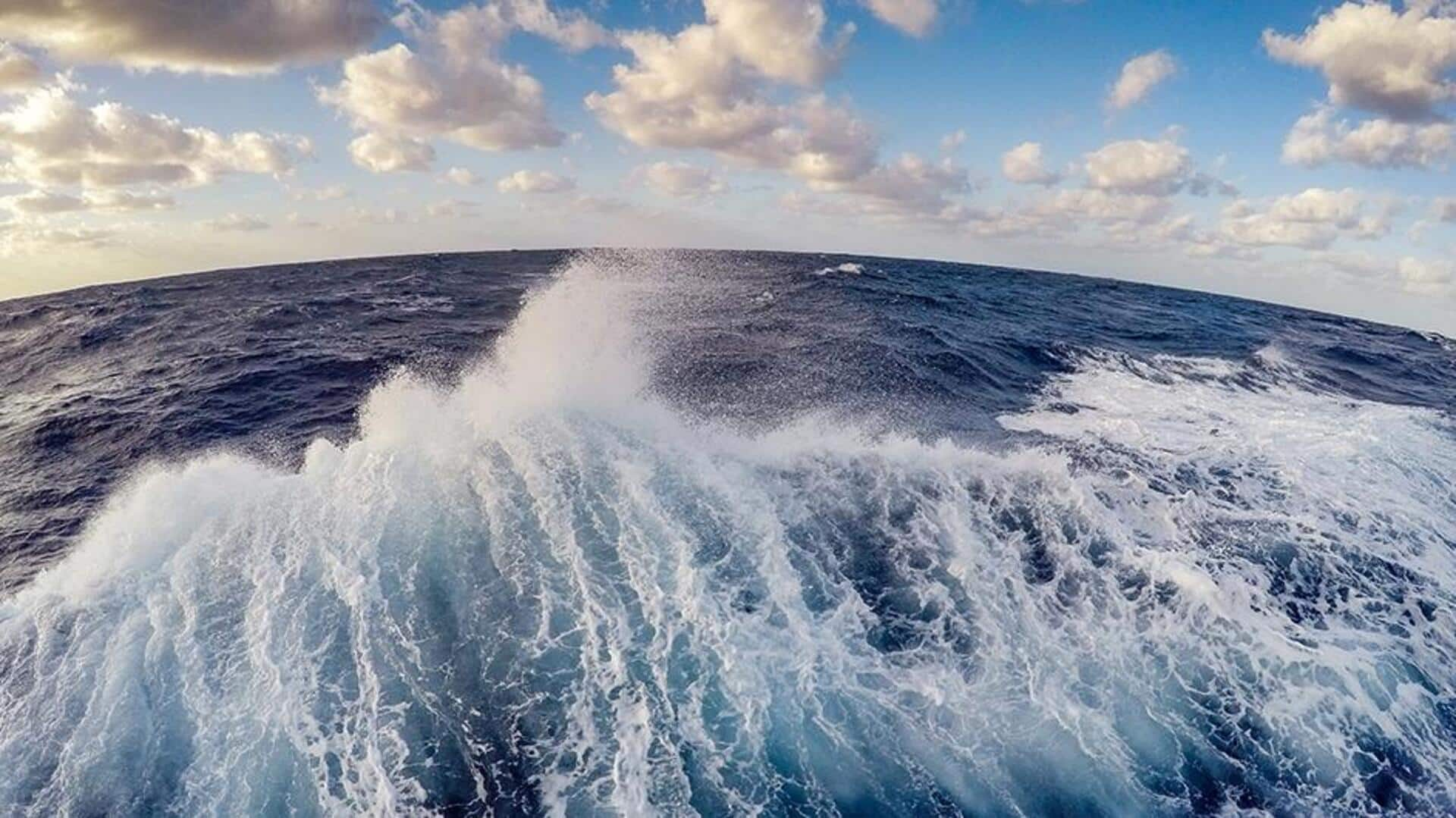
Marine heatwaves are becoming frequent, last longer in deep ocean
What's the story
Marine heatwaves are becoming "increasingly common" with "devastating ecosystem impacts," says a new study published in Nature Climate Change. These extreme events threaten deep-sea biodiversity and sensitive species, like corals in the Great Barrier Reef and kelp forests off southern Australia and the northeastern Pacific. They are at risk due to their inability to migrate away from warm waters. The study's lead author, Eliza Fragkopoulou, claims it is "the first attempt to look into marine heatwaves below the surface."
Details
Duration of intense heatwaves increased with depth
The study looked at global marine heatwaves between 1993 to 2019, covering data up to 2,000 meters below the surface. Researchers discovered that the intensity of marine heatwaves was highest at 50-200 meters below the surface, and sometimes up to 19% stronger than surface heatwaves. The duration of these events also increased with depth, with warming lasting up to two years after surface temperatures returned to normal, according to the study.
Impact
Highly exposed species reside in North Atlantic and Indian oceans
Marine heatwaves can severely impact those species which are unable to migrate away from intolerably warm waters. The largest portions of highly exposed species were identified in the North Atlantic and Indian oceans, at depths between 1,000 and 2,000 meters. Fragkopoulou said the impact on biodiversity was likely greatest from the surface to a depth of 250 meters. Furthermore, high-stress conditions were found to be overlapping in up to 22% of the global oceans.
Insights
Urgent need for ocean monitoring amid climate change
Oceans have absorbed 90% of excess heat produced by human activity since the industrial age. Climate change is primarily responsible for making such extreme events like marine heatwaves more frequent. "Considering that marine heatwave impacts on deep-sea biodiversity are still largely unknown, there is an urgent need for more and better monitoring of the global ocean to understand their effects," Fragkopoulou told AFP. This knowledge will help us better comprehend potential impacts on tourism and fisheries, and inform conservation efforts.